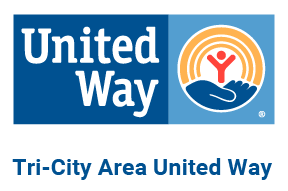Did you know the most dangerous time in an unhealthy or abusive relationship is during and after a breakup?
That’s one of the reasons why sitting down and developing a plan before ending a relationship is so important. Even if you are not leaving an abusive situation, having a plan is a great idea and can give you the support you need in a difficult time. Keep in mind you can reach out to trained advocates at any time via phone, text, or DM if you don’t know where to start.
Here are a few of the basics to consider before ending a relationship.
💙 What is a safety/breakup plan?
A safety/breakup plan is a personalized strategy to navigate from potentially dangerous situations.
💙 Why is it important to have a safety/breakup plan?
Once you have made the decision to end a relationship, your instinct may be to do it quickly, but during a breakup, your partner might escalate their aggression or threaten self-harm to keep you from leaving. That’s why it’s really important to take the time to make a plan of action and know it might change over time. If you are at all concerned about how your partner might react to a breakup, or if you feel increasingly threatened, it is vital to add more safety measures. Remember, it’s always better to be over prepared and take precautions.
💙 It’s okay to ask for help
If you are in an unhealthy or abusive relationship, know that the abuse is not your fault and that you deserve to feel safe. Asking for help to leave a relationship that no longer makes you happy or threatens your safety is brave and a sign of strength! There is no weakness in leaning on the people and resources around you.
💙 Conflicting feelings are normal
It’s easy to look back on a relationship and focus on the good parts. Doing this may make you question if you want to go through with the breakup at all — but there are two key things to remember here. First, you may understand the reasons behind your partner’s behaviors, but know there is never an excuse for treating you in an unhealthy or abusive way — it’s not your job to “fix” your partner. Second, feeling sad or missing your partner during a breakup is normal. Trust your gut in making the best decision for you and lean on your support networks to help you through this tough time.
Tips for safely breaking up with someone:
- Create a safety/breakup plan. Lean on trusted resources or your local domestic violence organization to make one.
- Let your friends, parents, or a trusted adult* know that you are ending your relationship, especially if you think the other person will try to confront you when you’re alone.
- It is normal to miss your partner after a breakup, even if they have been abusive. Write down your reasons for ending the relationship and keep them as a reminder. Give a copy to a trusted friend who you have identified to be part of your support system.
- If you don’t feel safe, don’t break up in person. Trust your gut! Sometimes the safest way to break up is by phone or social media, even if it feels impersonal or mean.
- If you end your relationship in person, strongly consider doing it in a public place where there are other people around. Have friends or your parents wait nearby and always take a cell phone with you.
If you or someone you know is experiencing an unhealthy or abusive relationship, check out our real-time resources, or call the National Domestic Violence Hotline at 1-800-799-7233.
| Get Help |
*For LGBTQ+ young people, you might be concerned about being outed during or after a breakup. It’s okay and important to find a trusted adult if your parents are not supportive.
Thank you from the One Love Foundation



